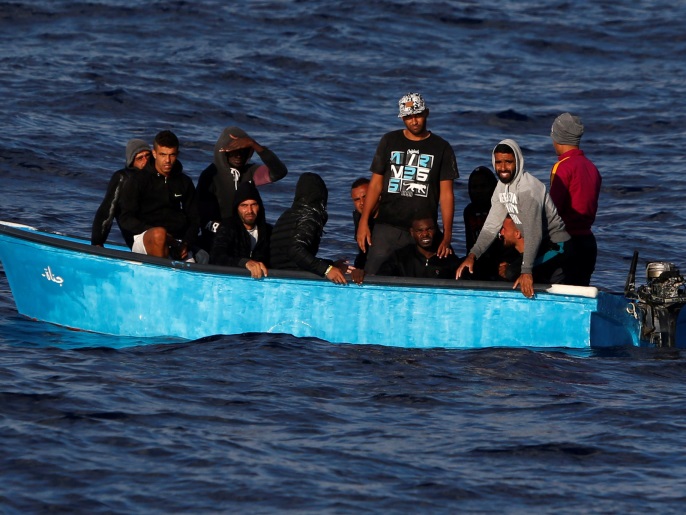The families of 15 Egyptian youths from a poor town in the Nile Delta fear the worst fate of their children, who tried last month to cross to Europe via a dangerous journey in the Mediterranean, just like thousands of migrants before them.
The town of Dahmsha (located in the Sharkia governorate, 60 kilometers north of the capital Cairo) in the middle of the cotton fields looks like a ghost town, after hundreds of its youths left for neighboring Libya, which is witnessing a conflict, to try from there to Europe in search of a better opportunity.
In mid-August, a small truck hired by a human trafficker left Dahmasha - which has a population of 18,000 - carrying 37 young men, who each paid 70,000 Egyptian pounds (about 4,300 dollars) for the trip.
A month later, the International Organization for Migration announced that at least 20 immigrants - most of them Egyptians and Moroccans - were missing from the delinquency of a dilapidated boat in the Mediterranean, after leaving the Libyan shores.
Two bodies have since been returned to Dahmacha, and an unspecified video clip was posted on the Internet showing 20 survivors, and relatives of these confirmed their identities, but they could not confirm that they actually survived because they were not able to speak to them directly yet.
Egyptian MP Sahar Atman confirmed last week on Facebook - after contacting the authorities - that 20 men had survived, and that work was underway to return them to Egypt.
However, there is no specific information about the 15 missing men from Dahmasha.
Since the International Organization for Migration announced their loss, their mothers and black-clad wives have made them cry.
Despite the risks, ceaseless attempts to cross the Mediterranean to Europe (Reuters)
Are being held hostage
"I just want anyone to give me even 1% hope that I will get any information about my son," said Houria, a mother of a missing 24-year-old.
The last contact between her and her son, Mohamed Farag, was hours before he boarded a boat in the Libyan port of Zawiya (west of Tripoli), and the boat was on its way to the Italian island of Lampedusa.
The young man, who used to paint homes, left his wife and son (two months) behind in the town.
While Houria says that Muhammad was the eldest of her three children and "the best of them."
Karim, his 23-year-old brother, recounts that Muhammad invited him to travel with him, "but I told him," I will not go, you will die before you get there. "
The Egyptians' journey turned into an ordeal before they reached the Mediterranean coast, according to their relatives.
Rawia Abdullah says her husband's brother called her begging for her to send him money to pay to the smugglers who were holding him.
"He said they did not give them either water or food," she said, and they hit them when they talked to one another.
And confirms, "They were held hostage in a warehouse for 25 days," and the family was forced to sell their car to hand over 20 thousand pounds to the Egyptian smuggler who contacted them.
No comment from the authorities
An Amnesty International report published last September confirmed that migrants were "kidnapped by militias, armed groups and smugglers" before they were "tortured or raped until their families pay a ransom."
Rawiya Abdullah says that the people of Dahmacha are still waiting for information from the authorities and assistance from the government of President Abdel Fattah El-Sisi, adding, "We ask the president to feel our pain."
Agence France-Presse says it has requested comment from the Egyptian Ministry of Immigration, but has not received a response.
The Egyptians are a small fraction of the tens of thousands who cross the Mediterranean to reach Europe from the African continent.
Angrily, Rawiya says, "What can our youth do, kill or steal? They migrate to get money in an honest way."
"We lost our money and our youth ... we lost everything ... we have nothing left ... we want at least their bodies to bury them here."

